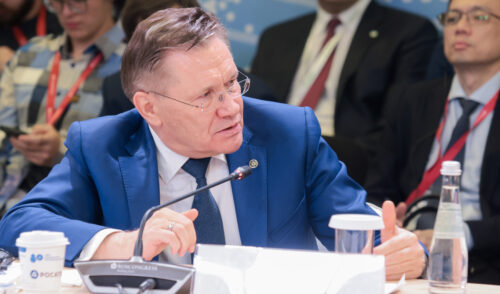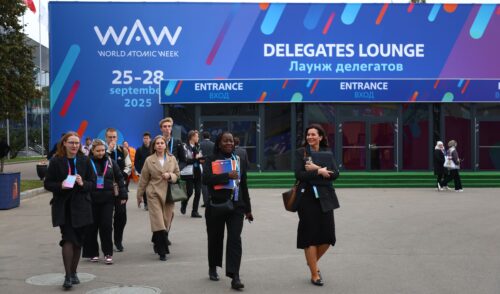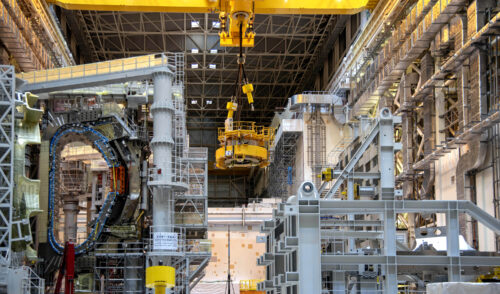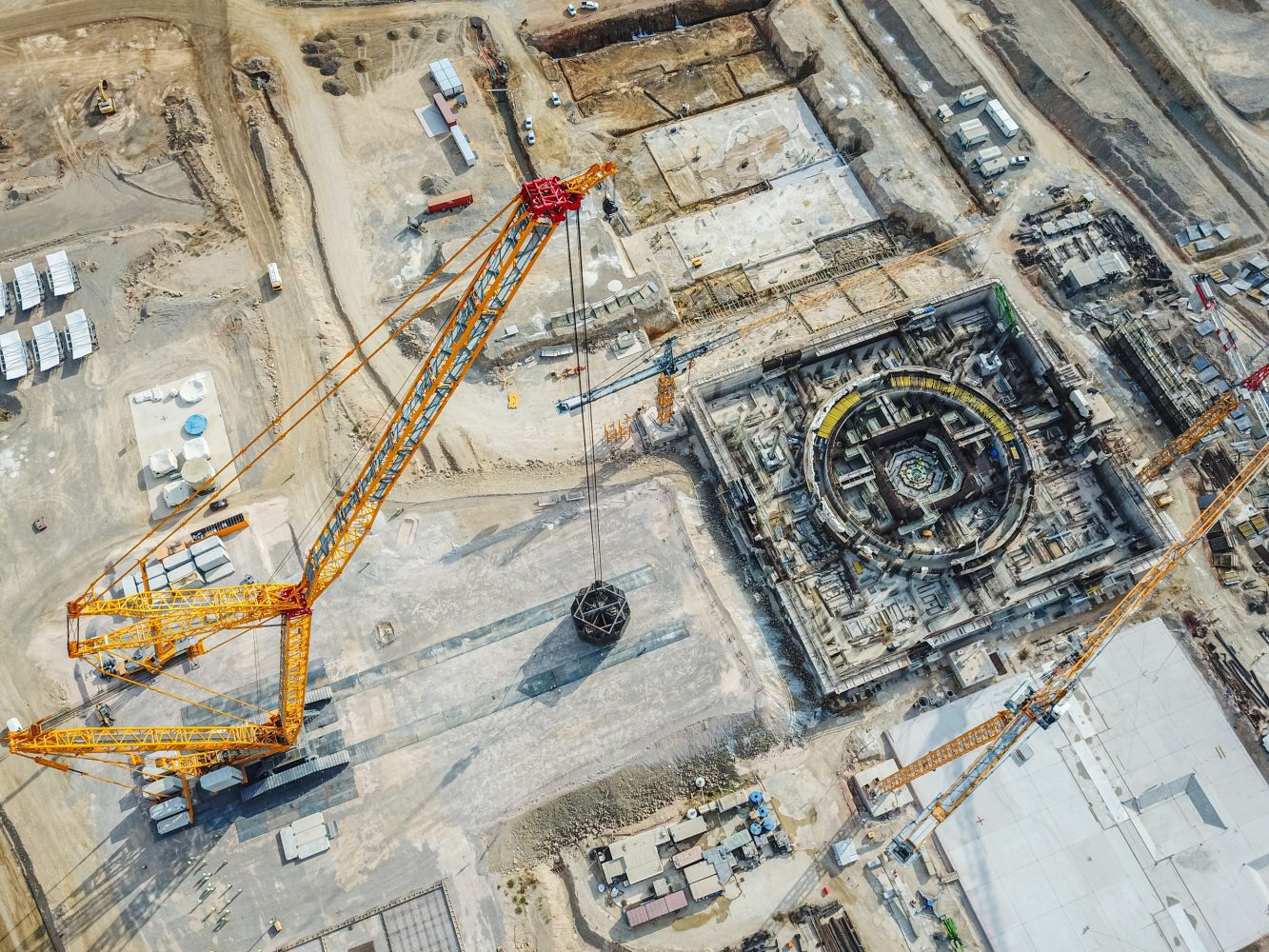
Knowledge about Atom
back to contentsIstanbul hosted the 7th international Nuclear Power Plants Expo and Summit (NPPES 2020), bringing together over 1,900 delegates and visitors.
Opening the summit, World Nuclear Association (WNA) Senior Consultant Philippe Costes said that nuclear was an important means of achieving climate neutrality in Europe. “A solution to global warming lies in adding 15 GW of new nuclear capacity every year,” Costes said.
At the summit, Rosatom and Akkuyu Nükleer organized a seminar for Akkuyu suppliers. Over 200 NPPES delegates attended the seminar to learn about Rosatom’s approach to building supply chains and procuring local goods and services and study cases of cooperation with Turkish suppliers. Some of the sessions were devoted to Rosatom’s standard procurement procedures and procurement plans for the under-construction nuclear power plant for 2020, preparation of tender documents, and bidding procedures.
Damla Erdem, Managing Partner at EKE ENDUSTRI TESISLERI TAAH. VE TIC. A.S., which won a contract for the supply of general purpose tanks, said “We are proud to have become a supplier of the Akkuyu Nuclear Power Plant, a landmark project for our country. Our company has been working for 16 years, but it was far from easy to bid for the contract and win it. The guidance we received helped us prepare the documents. Well begun is half done, they say. We are ready to try our hand at bidding for other supply contracts for Akkuyu.”

The nuclear station will need qualified personnel, and Rosatom helps Turkey train them. Turkish students study at one of Russia’s best technical universities, National Research Nuclear University (MEPhI). Fifty-four students, who already graduated under the program developed specifically for Akkuyu Nükleer, were offered jobs with the company. The recent graduates have already joined the team of the under-construction Akkuyu NPP.
Nuclear is the most promising segment of the power industry, and popularity of nuclear professions is growing, Alexey Frolov, Managing Director for GR and International Cooperation at Akkuyu Nükleer said, “Our countries agreed on the construction of Turkey’s first nuclear power plant in 2010, and we began training Turkish professionals as soon as 2011. Working in a hi-tech industry like the nuclear industry is today prestigious and farsighted. Nuclear technology contributes to sustainable development.” Currently, over 120 students from Turkey study in Russia.
Machinery and equipment for the Turkish station are produced by leading Russian companies. Just recently, Rosatom’s subsidiary Atommash finished welding and heat treatment of the reactor pressure vessel for Unit 1. It is one of the most important but far from the last production steps – shipping the reactor vessel to Turkey will take at least six more months.
Welding lasted 10 days without a break. When it was completed, the 320-tonne item was lifted with a crane and placed into an oven for the two-day heat treatment. Then the pressure vessel was taken out and left to cool down.
There will be two more critical, labor-intensive steps. First, the vessel’s internal surface will be coated by deposition welding. The welded layer improves radiation and corrosion resistance of the reactor, which is designed for 60 and more years in operation. Second, threads need to be cut for 55 studs holding the vessel’s head in place when the reactor is in operation.
Nuclear is a reliable and environmentally safe source of electric power. Turkish experts keep repeating that sharing this knowledge with people living in Turkey is very important. In an interview to Demirören Haber Ajansı, Dr. Can Turgut, a design engineer at ITER Organization, made the following comparison: the total body dose received from a nuclear power plant over a year is equivalent to the dose received during a 6-hour flight or if one eats one banana a day during a year. “Nuclear power stations produce very little radiation, which is unable to do harm to people. Nuclear plants are responsible for as little as 0.05% of the annual dose of radiation received by people. Radiation from coal-fired power plants is 100 times higher. Nuclear power stations are designed and built to keep radioactive elements inside the reactor vessel even in case of emergency,” Can Turgut stressed.
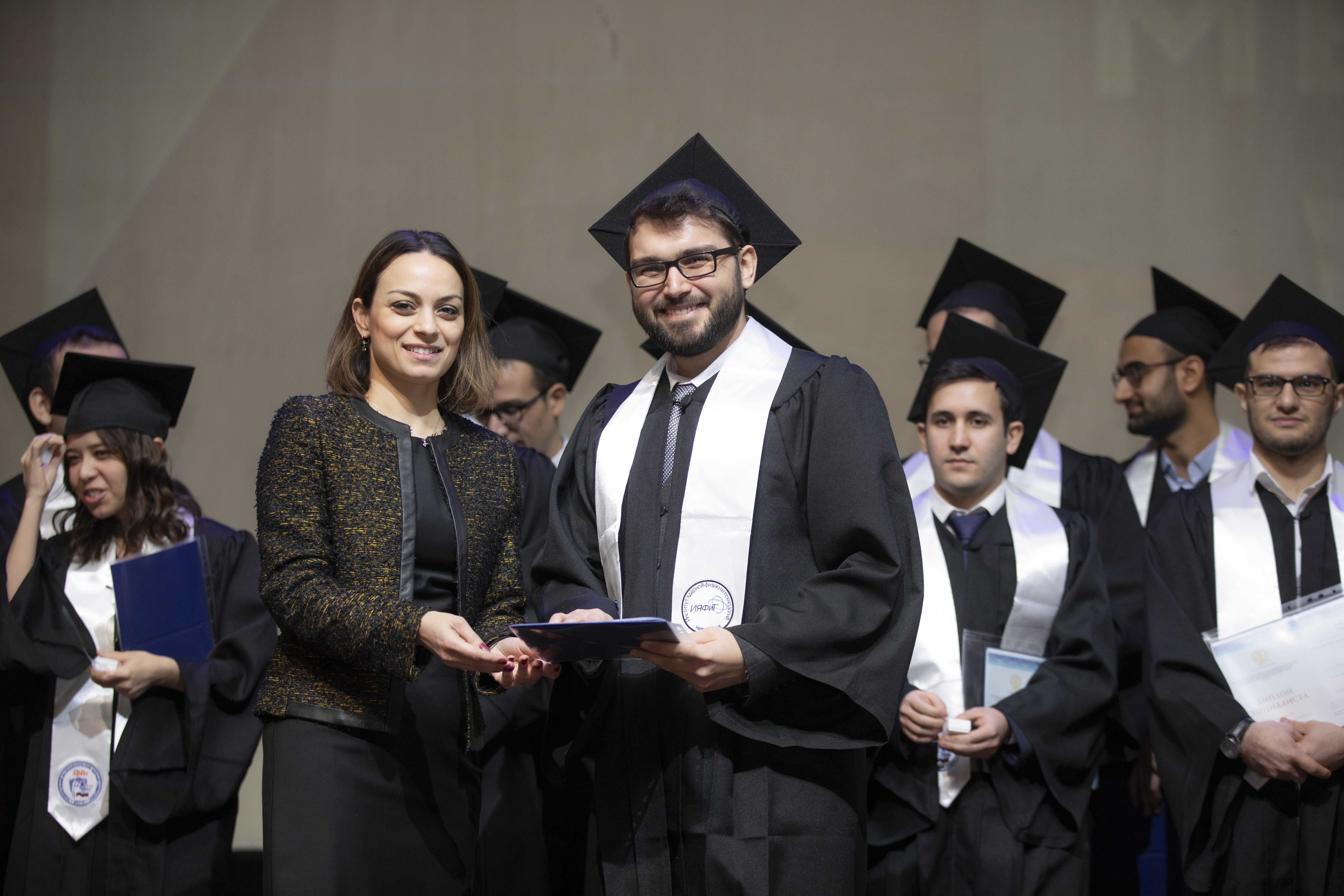
There are several non-governmental organizations operating in Turkey and supporting the development of nuclear energy. Mothers for Nuclear is one of them. Speaking at NPPES 2020, Heather Matteson, the co-founder of the Mothers for Nuclear platform, said, “I spent my childhood in fear of nuclear energy, but years later I took a job at a nuclear power plant and realized that nuclear energy is environmentally friendly. I want my child to grow in a green world and expect Turkish mothers to support our movement.”
Photo:
Akkuyu NPP Unit 1 construction site
Workshop for suppliers of the Akkuyu NPP project at the VII International Nuclear Energy Summit
MEPhI foreign students graduation


